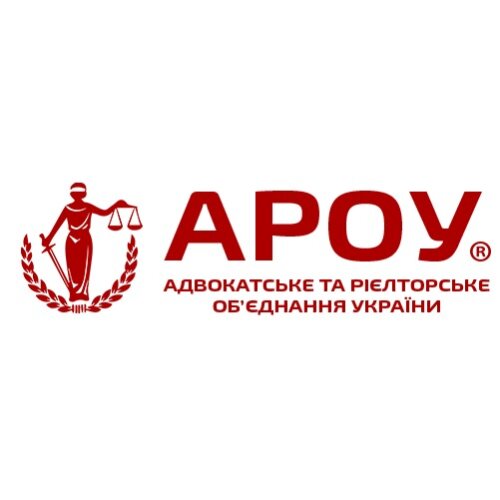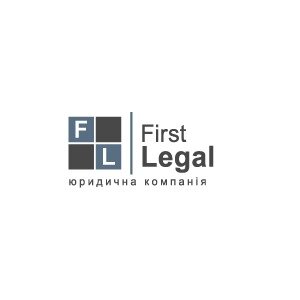Best Mining Law Lawyers in Ukraine
Share your needs with us, get contacted by law firms.
Free. Takes 2 min.
Or refine your search by selecting a city:
List of the best lawyers in Ukraine
About Mining Law in Ukraine
Mining Law in Ukraine refers to the legal framework that governs the exploration, extraction, processing, and sale of mineral resources within the country. This area of law regulates how companies and individuals can obtain rights to use subsoil resources, what environmental and safety standards they must follow, how production is licensed, and how royalties or taxes are paid. The key pieces of legislation include the Subsoil Code of Ukraine, various environmental laws, and licensing regulations. Ukraine is rich in various minerals, including coal, iron ore, manganese, and non-metallic materials, which makes Mining Law a significant field for investors, businesses, and landowners.
Why You May Need a Lawyer
Legal assistance in Mining Law can be crucial for a range of scenarios. Here are some common situations where a lawyer's expertise can make a significant difference:
- Applying for and obtaining mining licenses or permits
- Negotiating and drafting contracts for exploration or mining joint ventures
- Navigating disputes involving subsoil use, boundaries, or rights allocation
- Adhering to environmental, labor, and safety regulations
- Managing compliance with tax and royalty payment obligations
- Handling land use issues and resolving conflicts with landholders or authorities
- Participating in tenders or auctions for mining rights
- Challenging unlawful cancellation or suspension of licenses
- Foreign investment structuring and compliance with Ukrainian law
Local Laws Overview
Mining activity in Ukraine is primarily governed by the Subsoil Code of Ukraine, which establishes the rights and responsibilities of subsoil users. The law defines subsoil as publicly owned and managed by the state, and access is permitted through licenses, leases, or special permits. Environmental regulations are detailed in the Law on Environmental Protection and the Law on Waste, among others. Mining projects often require environmental impact assessments before obtaining permits. Safety standards are enforced under the Law on Labor Protection. Taxes and royalties for mineral resource use are regulated by the Tax Code of Ukraine. Various authorities oversee different aspects of mining, including the State Service for Geology and Subsoil (Derzhgeonadra), the Ministry of Environmental Protection and Natural Resources, and regional administrations. Foreign participation is permitted but can be subject to certain restrictions or additional requirements.
Frequently Asked Questions
What minerals or resources are commonly mined in Ukraine?
Ukraine is known for mining coal, iron ore, manganese, uranium, titanium, limestone, and non-metallic minerals. It also has significant deposits of oil, gas, and rare earth elements.
Who owns the mineral resources in Ukraine?
All subsoil resources belong to the Ukrainian people and are managed by the state. Individuals or companies can obtain rights to use these resources through permits, licenses, or concessions.
How can a company obtain rights for exploration or extraction?
Companies must participate in public tenders or auctions and obtain a special permit or license from the State Service for Geology and Subsoil. The process involves submitting documentation, a development program, proof of qualifications, and, often, an environmental assessment.
Are foreign companies allowed to participate in mining activities?
Yes, foreign companies can participate in mining in Ukraine, either directly or through joint ventures. However, they must comply with Ukrainian legal requirements and, in some cases, may face additional scrutiny or require local registration.
What environmental regulations affect mining operations?
Mining operations must conduct environmental impact assessments and adhere to laws on environmental protection, waste management, and water use. Breaching these regulations can result in fines, suspension of operations, or revocation of permits.
What taxes and royalties apply to mining in Ukraine?
Mining operations are subject to royalties on extracted resources, value-added tax, income tax, and, in some cases, regional fees. The rates and calculation methods are defined in the Tax Code of Ukraine and may vary by resource type.
How long does a mining license last?
License terms depend on the type of activity. Exploration licenses are usually granted for three to five years, while production licenses can last up to twenty years with an option for extension.
What can cause a mining license to be cancelled or suspended?
Licenses can be revoked for violations of environmental, tax, or safety regulations, failure to comply with development schedules, unauthorized transfer of rights, or non-payment of stipulated fees.
What legal obligations exist related to workers' safety?
Companies must comply with national labor protection laws, including providing safe working conditions, training, protective equipment, and insurance for employees in mining operations.
Can individuals or businesses challenge licensing decisions?
Yes, decisions made by licensing authorities can be challenged through administrative appeal procedures or in the Ukrainian courts, especially if procedural or substantive violations are believed to have occurred.
Additional Resources
If you need further information or support, consider consulting the following resources and organizations:
- State Service for Geology and Subsoil of Ukraine (Derzhgeonadra) - handles licensing and regulation of mining activities
- Ministry of Environmental Protection and Natural Resources of Ukraine - oversees environmental assessments and regulations
- Regional Administrations and Municipal Authorities - handle land use and local permits
- Ukrainian Bar Association - directory of licensed lawyers with experience in mining law
- National Association of Subsoil Users of Ukraine - provides industry news and advocacy
- Court Registry of Ukraine - for information on legal cases and precedents related to mining
Next Steps
If you require legal assistance in Mining Law in Ukraine, consider taking the following steps:
- Clarify the nature of your legal issue or question and gather all relevant documents
- Research and shortlist lawyers or law firms with experience in Ukrainian Mining Law
- Contact your selected legal advisor for an initial consultation to discuss your case and available options
- Prepare a list of questions or concerns to address with your lawyer
- Follow your lawyer’s advice and provide all requested documentation promptly to avoid delays
Navigating the legal landscape of mining in Ukraine can be complex, but with the right legal support, you can protect your interests and ensure compliance with all relevant laws and regulations.
Lawzana helps you find the best lawyers and law firms in Ukraine through a curated and pre-screened list of qualified legal professionals. Our platform offers rankings and detailed profiles of attorneys and law firms, allowing you to compare based on practice areas, including Mining Law, experience, and client feedback.
Each profile includes a description of the firm's areas of practice, client reviews, team members and partners, year of establishment, spoken languages, office locations, contact information, social media presence, and any published articles or resources. Most firms on our platform speak English and are experienced in both local and international legal matters.
Get a quote from top-rated law firms in Ukraine — quickly, securely, and without unnecessary hassle.
Disclaimer:
The information provided on this page is for general informational purposes only and does not constitute legal advice. While we strive to ensure the accuracy and relevance of the content, legal information may change over time, and interpretations of the law can vary. You should always consult with a qualified legal professional for advice specific to your situation.
We disclaim all liability for actions taken or not taken based on the content of this page. If you believe any information is incorrect or outdated, please contact us, and we will review and update it where appropriate.
Browse mining law law firms by city in Ukraine
Refine your search by selecting a city.

















